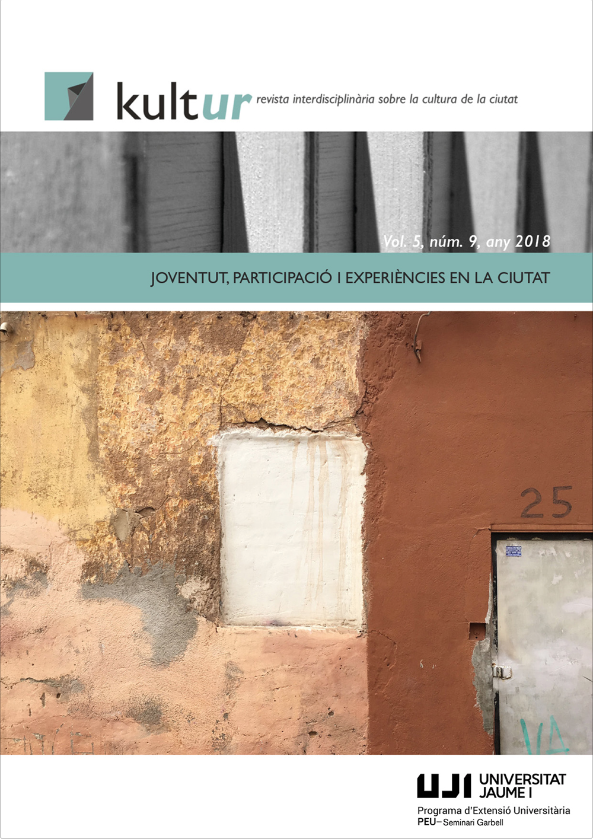Ephemeral Socialities: Social Navigation among Young Danes
Contenido principal del artículo
Resumen
This article analyses how young people get together in the spatial, temporal and social complexity of urban space. We suggest the term ephemeral urban socialities to understand how young people construct alternative socialities that are not embedded within an institutional mode of thinking or a formalised social setting. Based on anthropological fieldwork and empirical material generated in the Danish cities of Aarhus and Horsens by Anne-Lene Sand, we frame the analysis in a context where the development of urban space minimises social places that young people can define by and for themselves. This article investigates how young people come together socially in a context that seems to be highly regulated and planned, but that from another perspective is uncertain (Highmore, 2005; Lefebvre, 1994) and open to ludic interpretation (Stevens, 2007). The material is discussed through the lens of the Danish anthropologist Henrik Vigh’s concept of social navigation (2006, 2009) to understand young people’s mobile and changing social formations in the urban context. This article contributes knowledge about modern urban socialities in medium-sized northern European cities that, in the case of youth formations, cannot be described as groups or as territorial, but that are constructed through the desire to meet with “like-minded individuals”.
Descargas
Detalles del artículo
.png)
Todos los contenidos de la revista kult-ur se distribuyen bajo una licencia de uso y distribución Creative Commons Atribución-Compartir Igual 4.0 Internacional (CC BY-SA 4.0), salvo indicación contraria. Puede consultar aquí la versión informativa y el texto legal de la licencia. La indicación de la licencia de uso y distribución, CC BY-SA 4.0 debe constar expresamente de esta manera cuando sea necesario.
Los contenidos de kult-ur no pueden distribuirse o reproducirse con fines comerciales. La revista kult-ur se reserva el derecho de reproducción de artículos en papel, formato digital (pdf, epub, mobi, etc.), o ediciones HTML de kult-ur en el futuro. Los usuarios pueden realizar algunas copias impresas para su uso personal o con fines educativos o de investigación.


